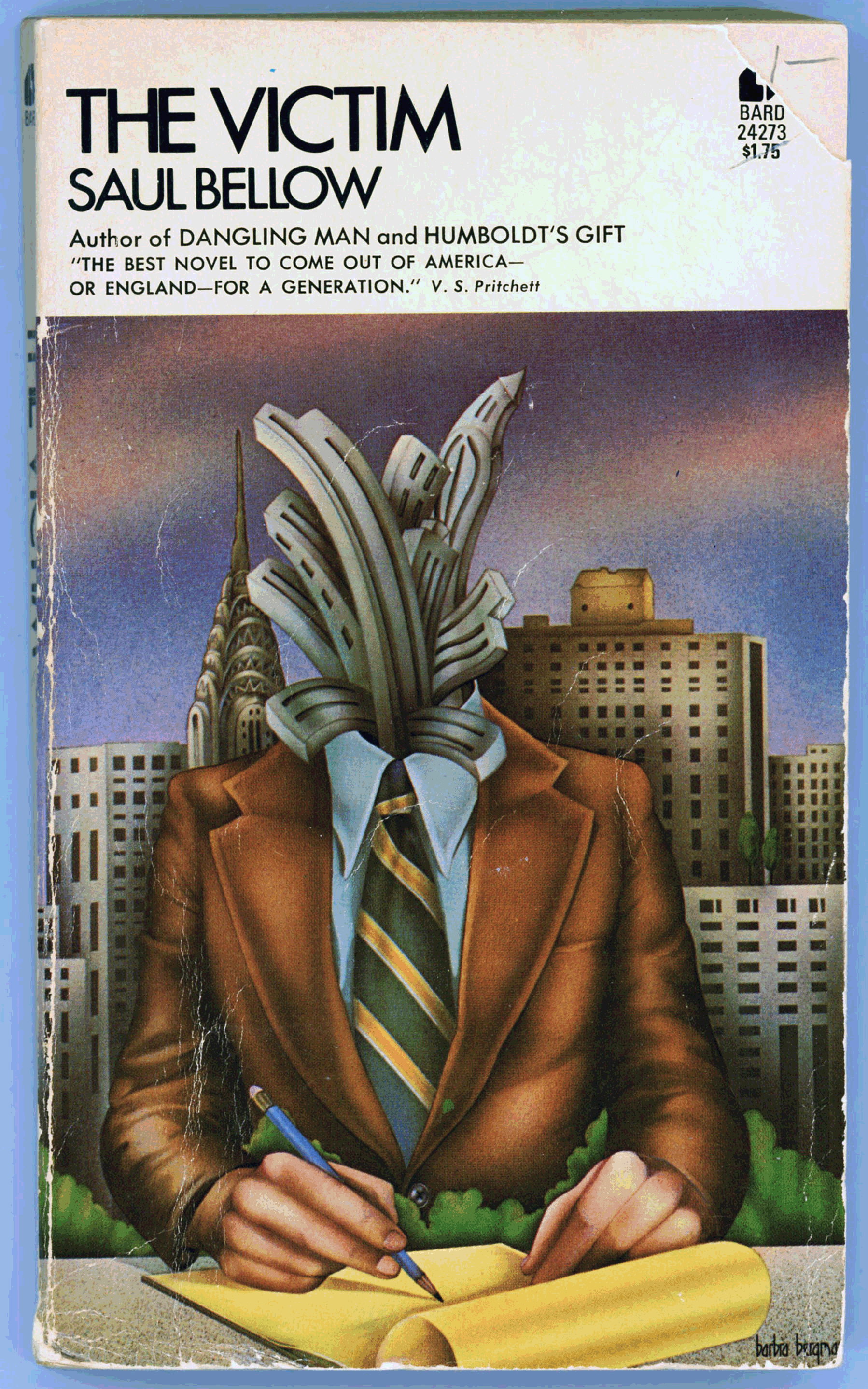 In a general way, anyone could see that there was great unfairness
In a general way, anyone could see that there was great unfairness
in one man’s having all the comforts of life while another had nothing.
But between man and man, how was this to be dealt with?
Any derelict panhandler or bum might buttonhole you on the street and say,
“The world wasn’t made for you any more than it was for me, was it?”
The error in this was to forget that neither man had made the arrangements,
and so it was perfectly right to say,
“Why pick on me?
I didn’t set this up any more than you did.”
Admittedly there was a wrong, a general wrong.
Allbee, on the other hand, came along and said, “You!” and that was what was so meaningless.
For you might feel that something was owing to the panhandler,
but to be directly blamed was entirely different.
“Why?” Leventhal involuntarily repeated. He was bewildered.
“Because you’ve got to blame me, that’s why,” said Allbee.
“You won’t assume that it isn’t entirely my fault.
It’s necessary for you to believe that I deserve what I get.
It doesn’t enter your mind, does it –
that a man might not be able to help being hammered down?
What do you say?
Maybe he can’t help himself?
No, if a man is down, a man like me, it’s his fault.
If he suffers, he’s being punished.
There’s no evil in life itself.
And do you know what?
It’s a Jewish point of view.
You’ll find it all over the Bible.
God doesn’t make mistakes.
He’s the department of weights and measures.
If you’re okay, he’s okay, too.
That’s what Job’s friends come and say to him.
But I’ll tell you something.
We do get it in the neck for nothing and suffer for nothing,
and there’s no denying that evil is as real as sunshine.
Take it from me, I know what I’m talking about.
To you the whole thing is that I must deserve what I get.
That leaves your hands clean and it’s unnecessary for you to bother yourself.
Not that I’m asking you to feel sorry for me,
but you sure can’t understand what makes a man drink.”
Mr. Benjamin shrugged his shoulders.
“We have to live today,” he said.
“If you had a son, Harkavy, you’d want him to have a college education.
Who’s going to wait for the Messiah?
They tell a story about a little town in the old country.
It was out of the way,
in a valley,
so the Jews were afraid the Messiah would come and miss them,
and they built a high tower and hired one of the town beggars to sit in it all day long.
A friend of his meets this beggar and he says, ‘How do you like your job, Baruch?’
So he says, ‘It doesn’t pay much, but I think it’s steady work.’”
– Saul Bellow –

 ______________________________
______________________________ Story description, from rear cover…
Story description, from rear cover…






